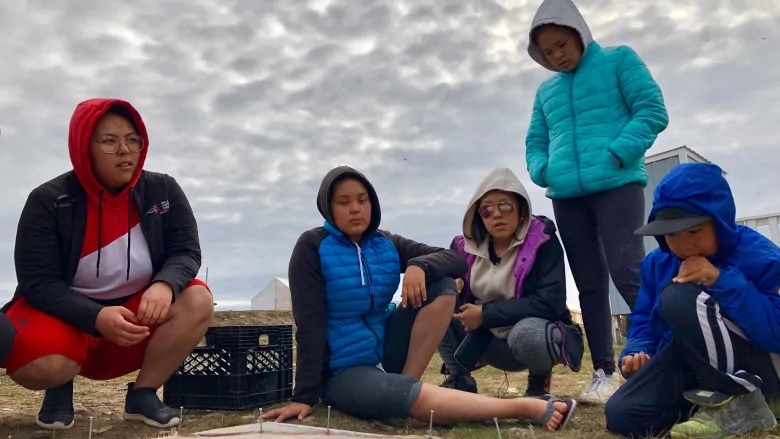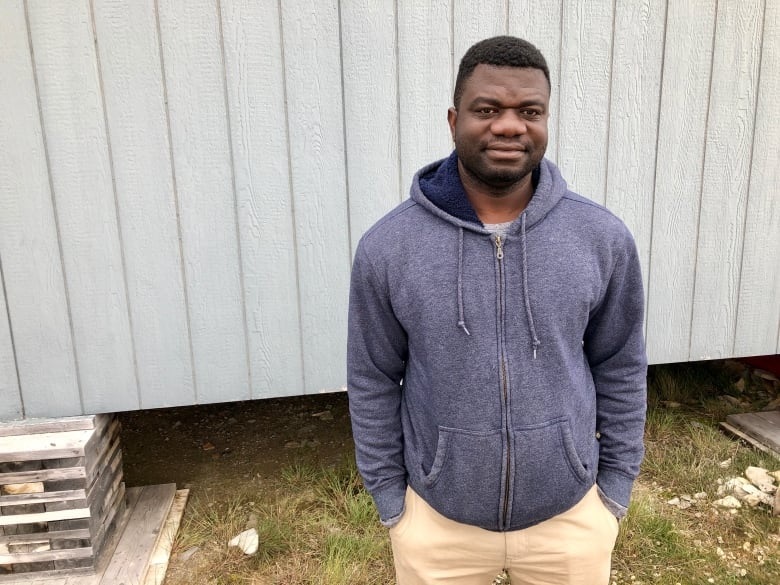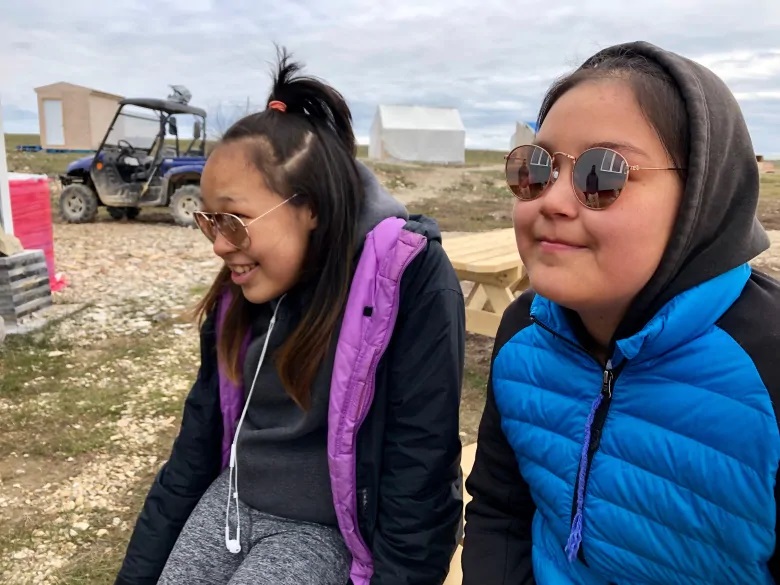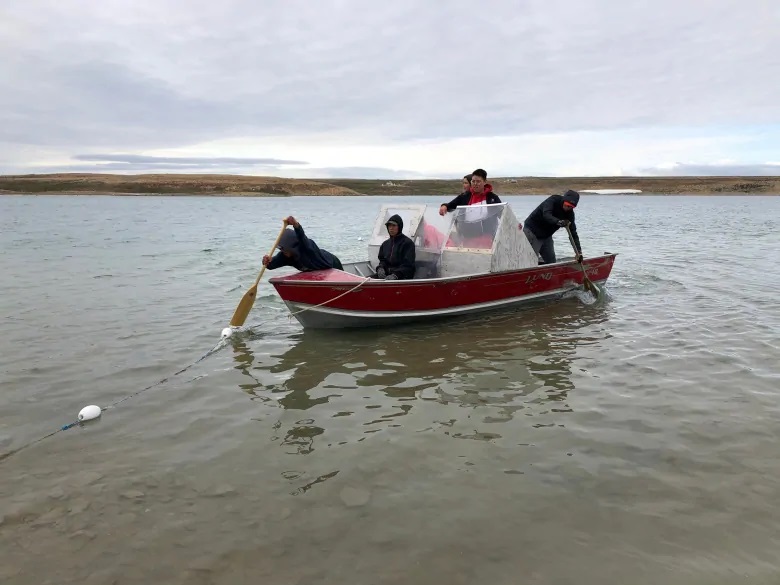Camp in Nunavut, Arctic Canada helping teens make new connections and gain new skills

A summer camp aimed at helping young people, including some considered at-risk, in Cambridge Bay, Nunavut, is helping them make positive connections, while arming them with skills for the next school year.
The week-long camp, which is based on the land outside the community of approximately 1,700 people, is part of the hamlet’s Youth Enrichment Program.
Young people, ages 12 to 19, spend time with elders learning skills, such as setting fish nets and sewing. They’re also discussing big issues, like addictions, teen pregnancy and bullying, and learning where to get the help they need.
“Risk factors that most of the youth face is sometimes from home,” said Francis Oduro, manager of culture and recreation for the hamlet.

While the camp is open to everyone, the hamlet aims to help at-risk youth build new, positive connections with their peers and elders.
Oduro said many face neglect and abuse from the adults in their lives.
“It’s sometimes hard to deal with.”
Young people who don’t have support at home are more likely to miss school, said Oduro. He knows of children as young as nine and 10 years old in Cambridge Bay who use marijuana recreationally. It’s also not uncommon to see young people wandering the streets late at night.

The hamlet invited young local leaders from the Mayor’s Youth Advisory Council to join the camp.
“They can start getting some positive friendships in the community,” Oduro said.
Every day speakers hold casual presentations, including from the justice department, health and social services and the RCMP. Topics include cannabis, suicide prevention and how to get funding for post-secondary school.
Megan Tologanak, 15, and Missy Ellsworth,13, sit on a picnic table chewing gum after learning how to check fish nets and filet an Arctic char. Earlier in the week, with the guidance of elders, they gutted a seal and learned how to stretch the skin.
“I’d like to be here almost all the time,” said Ellsworth. She says young people in her community have a lot on their minds.
“Sometimes families are always apart. Sometimes when they are together too much they fight, sometimes they are mad at each other, sometimes they feel bad for each other,” she said.
Tologanak says lots of kids are dealing with their parents’ issues. She said some parents get aggressive when it comes to alcohol.
“Their families like buying drugs or booze over [buying] food for their kids,” she said. That kind of stress can impact kids’ grades and ability to get to school.

Both girls agree the camp has been a positive experience.
“Before we came to this camp no one was talking to each other,” said Tologanak about mingling with other young people.
“But after we got here, we all started to get along, play with each other, talk with each other, hang out.”
The camp wrapped up on Aug. 3, but the Youth Enrichment Program will continue into the school year with frequent gatherings at the youth centre.
They’ll delve into more topics, such as how to report abuse, healthy relationships and Inuit pride.
“How to connect with the land, how to spend time on the land, how to do some of these hunting activities,” said Oduro.
“Those things can … help them to find themselves.”
Related stories from around the North:
Canada: Youth in Canada’s eastern Arctic speak up about lack of mental health services, CBC News
United States: Youth in Alaskan village turn boring meetings into lifelong skills, Alaska Public Media



